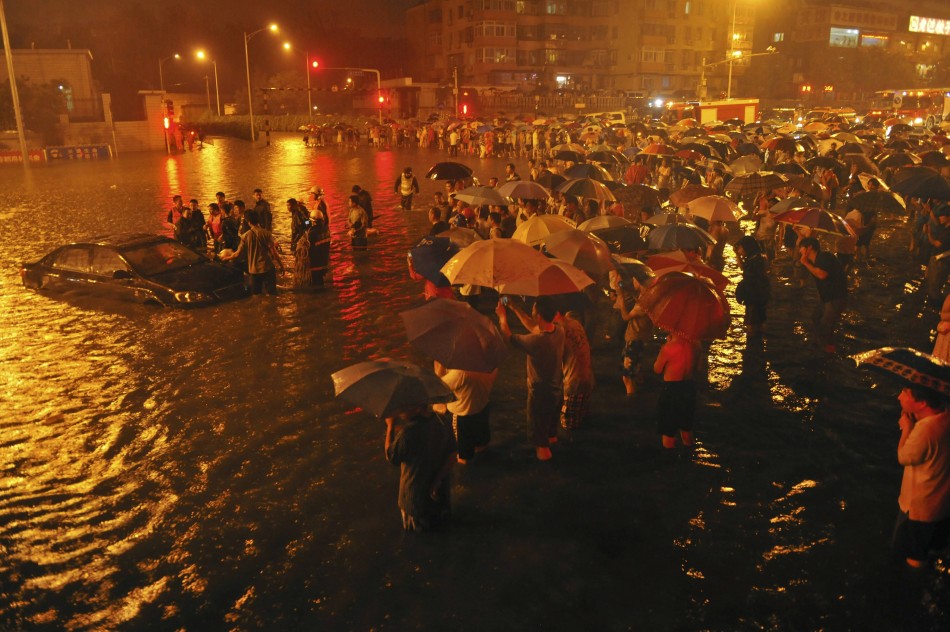Beijing's Deadly Deluge: Heaviest Rainfall for 60 Years Kills 10 [PHOTOS]
Nearly 500 flights cancelled and an estimated 80,000 people stranded at Beijing's main airport.
At least 10 people were killed and thousands left stranded in streets, subways and at the main airport of the Chinese capital Beijing as the city experienced its heaviest rainfall for 60 years on Saturday afternoon.
Most of the deaths were due to electric shock from downed power lines, roof collapse and drowning, said Xinhua. Flooding and landslides were also reported in the north and south-western parts of the city.
Nearly 80,000 people were stranded in Beijing Capital International Airport, reported the Chinese state media, Xinhua.
Over 500 flights were cancelled, according to Beijing News report.
Mobile communications and internet access were cut off in six townships. Train services between Beijing and Guangzhou were suspended, said Beijing's flood control headquarters.
Beijing recorded nearly 170mm (6.7in) of rain, and some suburbs as much as 460mm (18.1in).
"The weather forecasters say that from late July to early September this city is prone to flooding, and there could be further large-scale storms or extreme weather," said the Bejing city government on its website.
According to a Xinhua report, at least 30,000 people in the districts of Fangshan, Huairou, Mentougou and Pinggu, as well as Miyun and Yanqing counties, were relocated to safer areas by Sunday morning.
Nearly 12,000 rescuers and volunteers are working to return the city to normal.
Television footage showed people wading through the flooded streets, with rubbish bins and bicycles floating through the water.
"All the manholes had vanished because the water was sitting on top of them. It looked very dangerous and very difficult to find where these holes were," Tom Smith, a British student living in Beijing, told the BBC.
"I was terrified, most of all, by the thought of tumbling down a manhole without a cover after a friend told me that several people had died that way last year," the BBC quoted another Briton in Beijing, 20-year-old Reece Ayershe, as saying.
The Beijing deluge in pictures:










© Copyright IBTimes 2025. All rights reserved.



















